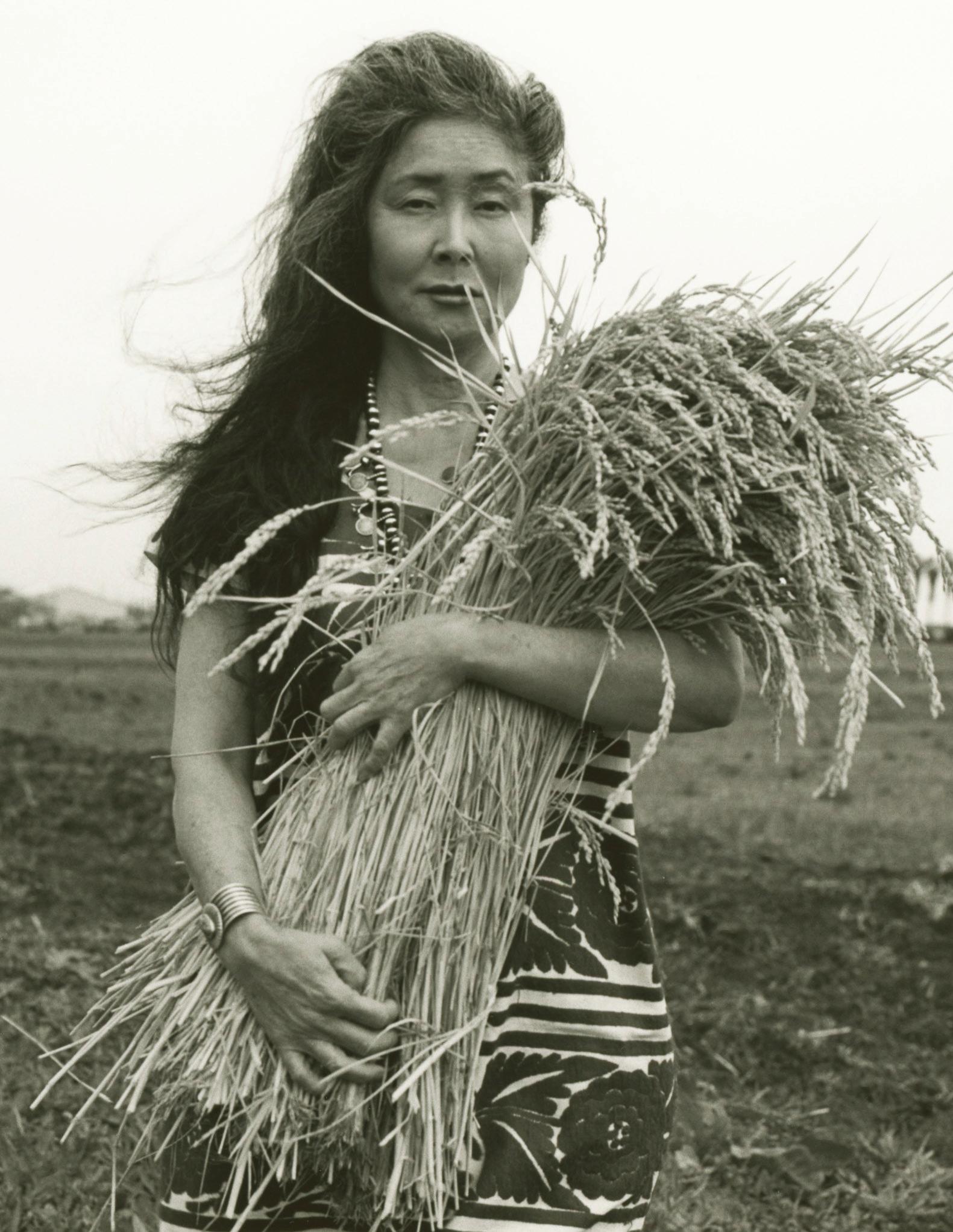
4 minute read
The Draw of the Land
ROBIN KODA ’80
For Robin Koda ’80, growing up on the family rice farm was almost cliché. Leaving the house after supper most evenings, Koda and her siblings would bike around the farm among grazing livestock, or roam the levees in search of minnows, crayfish, and birds’ nests. Trucks pulled up in her front yard to be loaded with bags of table rice, sweet rice, and rice flour. She chopped weeds and learned how rice was grown, harvested, processed, and packaged, all on site on about 5,000 acres in California’s northern San Joaquin Valley.
Advertisement
But this pastoral scene belies a tumultuous history that defines the story of the family farm. Robin, who now runs the farm with her brother Ross, explains: “Part of our strong ties to this place, this land, is due to the traumatic experience of our ancestors. It surrounds us on a daily basis.”
Koda Farms is the oldest family-owned and operated rice farm and mill in California. It was founded in the 1920s by Robin’s grandfather, Keisaburo, a Japanese immigrant whose farming acumen and pioneering growing techniques—including sowing seeds by air— earned him the moniker of “Rice King.” When the bombing of Pearl Harbor led to the internment of Japanese Americans during World War II, Keisaburo and his family were sent to a camp in Colorado and were forced to relinquish management of the farm to strangers. When the Kodas returned in 1945, everything had been sold off. Undeterred, Keisaburo’s sons slowly began buying up land and rebuilding the business just a quarter-mile from the original homestead. They became the first commercial growers of sweet rice in California—a sticky rice best known for its use in the Japanese rice cakes called mochi—and cultivated a new breed of medium-grain rice, Kokuho Rose, uniquely suited to their corner of the world.
Koda graduated from Pomona College with a bachelor’s degree in fine arts, then earned an MFA from the Art Institute of Chicago. She had a fellowship to make sculptures and other 3D artwork, spent time in Los Angeles and France, and considered trying to make a living as an artist, but she couldn’t stay away from the family farm. “I felt the draw of the land,” she says. Koda and her brother took over the business in the late 1990s. Living once again on the farm, she is the face of the business, sharing its story in countless interviews and making the trek to Santa Monica once a month to sell their rice at farmers markets.

Photo by Katsu Naito
Koda’s father helped run the farm; her mother was a teacher. The family valued education, but opportunities were slim in the Central Valley. One summer, Koda attended camp at Santa Catalina and “realized how much I was missing an education.” She asked if she could enroll at Catalina during the school year and came on board as a junior. Knowing it was a financial stress on her parents to send her to Catalina, Koda focused on her studies. “I was committed to making honor roll; that would be a way for me to acknowledge how grateful I was,” she says. Catalina was a challenging but eye-opening experience. “I learned that women didn’t always have to compete with men on the superficial values present and reinforced in everyday culture. You had the freedom to be yourself, and all you had to do was apply yourself academically. It was an extremely supportive environment that let you explore your true values.”
Koda said the farmers markets allow her to demonstrate how their rice differs from the majority of rice grown in California. “Unfortunately, a lot of rice has turned into a bland carbohydrate used as a vehicle for other ingredients. That’s not the focus of Japanese rice, which has so much significance in the culture and is appreciated on its own individual merit.” The heirloom variety of rice from Koda Farms, Kokuho Rose, is emblematic of this emphasis on quality. Growing this variety is truly a labor of love: It takes three years just to produce the seed, and the slow-maturing crop yields about a third less than contemporary grains. The result is rice that Koda describes as having a “slightly more floral bouquet.” Sold mainly in specialty stores, the rice is especially popular among Japanese Americans and is coveted by celebrity chefs and sushi aficionados.
Although Koda and her brother have made changes to the farm, including converting several hundred acres to organic production, the business continues to follow the model established by their grandfather almost a century ago. Koda sums it up: “As a small farm, we definitely feel the competition. But we’re trying to maintain our identity, our unique character. . . . This is about heritage and history.”






